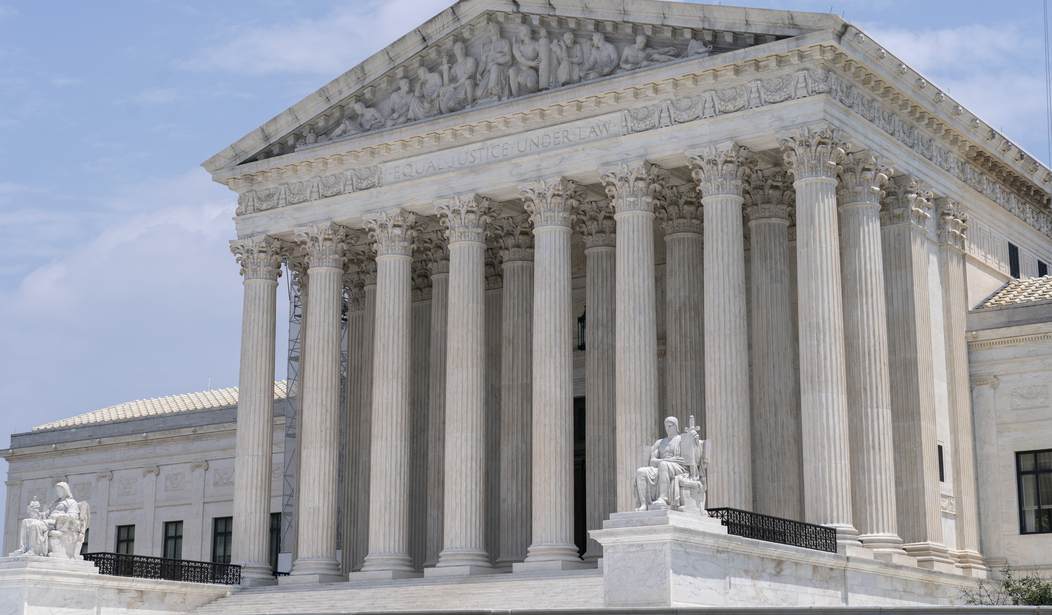Utah has filed suit in the Supreme Court against the federal government over the millions of acres that the feds hold and make inaccessible to the people of Utah. The state attorney general and governor, along with the state legislature, hope that the Supreme Court will affirm that the federal government has no constitutional right to hold “unappropriated” lands indefinitely.
In this case, “unappropriated” land refers to property that the federal government is holding on to but not using for anything, such as national parks, timber harvesting, mining, grazing, or any other purpose. The federal government has not, according to the complaint, reserved the land for any particular reason other than to just hold it, preventing the people of Utah from using it in ways they would prefer.
Nearly 70 percent of the land in the state of Utah is under federal control, which is a common situation for states west of the Rocky Mountains.
On the other hand, the land east of the Rockies has been mostly disposed of to individual states or the people therein. Most of this land is private, with federal holdings largely restricted specifically to national parks and military bases. There, the feds ended up taking less than 5 percent of the available land. West of the Rockies is a different story completely. The feds control more than 50 percent of all the land in the West, and it is especially bad in states like Utah and Nevada.
How did this come about? Most of the states in the West didn’t gain statehood until the late nineteenth century and into the twentieth century. Utah didn’t gain statehood until 1896. At that time, while the federal government held all that land, the Homestead Act allowed citizens to claim land, which they could keep so long as they managed and worked it. The government was also supposed to “dispose” of unused land back to state control, but stopped doing it because of the 1976 Federal Land Policy Management Act (FLPMA), which muddied the waters and gave the federal government more power to hold public land.
Recommended
Utah leadership clarifies in their press release that this lawsuit is only contesting the unappropriated land, not including national parks, dedicated wilderness areas, and tribally owned land. They also reassure the public that the land will not be simply sold off, but will stay in public hands so the people of Utah can access it.
The Utah Attorney General, Sean D. Reyes, makes a good point in the release that the Constitution doesn’t give any permission to the government to hold land in perpetuity.
“In fact, the Framers of the Constitution carefully limited federal power to hold land within states,” Reyes said. “Current federal land policy violates state sovereignty and offends the original and most fundamental notions of federalism.”
FLPMA did not go over well when it was passed, sparking the Sagebrush Rebellion, which seems to be more or less ongoing today in the form of smaller, isolated incidents of local pushback on encroaching government agencies. It remains unpopular with ranchers and landowners today. You probably could relate this issue to the 2014 Bundy standoff, or other recent and infamous land use disagreements, as it all stems from the federal government and its agencies’ obsession with control.
It is also the case that federally managed land is actually a lot worse off, both environmentally and economically, compared to private and state-owned land—especially the forests.
I was unaware of this issue, having grown up east of the Rockies, until I moved out West for college. There, sitting at a town hall meeting where one brave soul from the Bureau of Land Management decided to show up, I witnessed angry ranchers scolding the feds over wildfires that had started on federal land and spread to their property.
Unfortunately, the government has a bad history of allowing dead trees and underbrush to pile up for decades, which turns the forest into tinderboxes waiting for a spark, ready to burst into a raging inferno at the first lightning strike. Their forest management “strategy” demonstrably does not work. Moreover, it endangers the environment as well as people’s homes and livelihoods.
There is plenty of data supporting this claim: when you look at wildfire data from the government and stack it up against logging over time, there is a modest uptick in wildfire occurrence that tracks with that decline of timber harvesting in the West.
Fire is a natural part of the environment in the West; it will continue to occur. However, it doesn’t have to get out of control. Thinning forests out is a tried and true tactic for maintaining their health, and for preventing the kinds of wildfires that burn so hot they destroy healthy growth alongside the unhealthy.
The fire issue is only one part of the problem, the rest is that the federal government simply should not have the ability to take and keep land indefinitely. States do deserve their sovereignty, and the people in the state of Utah certainly deserve control over most of the public land within its borders.
Linnea Lueken (llueken@heartland.org) is a research fellow with the Arthur B. Robinson Center on Climate and Environmental Policy at The Heartland Institute. X: @LinneaLueken

























Join the conversation as a VIP Member